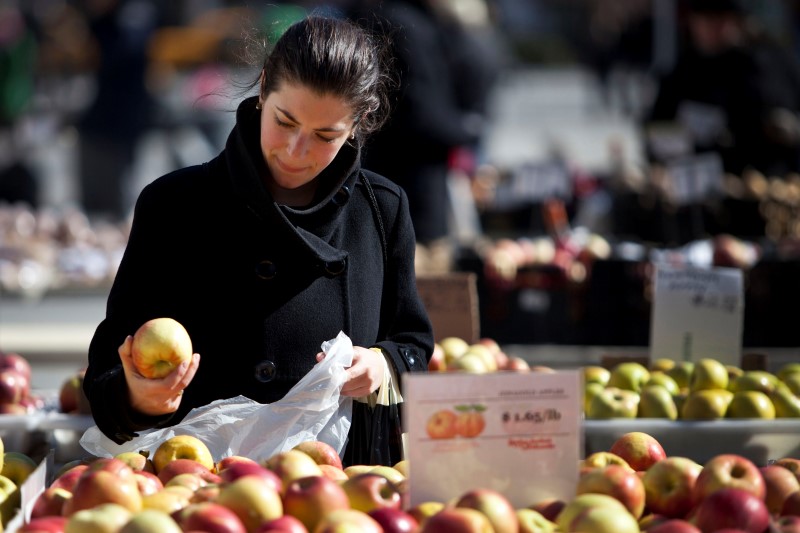By Chris Walljasper
CHICAGO (Reuters) - U.S. fruit and vegetable producers are bracing for dramatic disruptions to their labor force after the U.S. government said it was suspending visa interviews in Mexico to reduce the spread of the coronavirus.
The expected restrictions on migrant workers come as Americans strip grocery stores bare in preparation for potential orders to quarantine.
Starting on Wednesday, new applications will not be processed for the H2A guest worker program and only returning seasonal workers will be allowed to enter the United States, growers said.
The U.S. State Department has limited visa processing in many countries as governments try to curtail contact and curb the spread of the highly contagious respiratory illness. Late on Monday, the United States announced restrictions in Mexico.
While the harvesting of grains like wheat and corn is mostly automated in the United States, fruit and vegetable farmers rely on seasonal guest workers to pick their crops.
"When the process is stopped midstream, it likely means those crews won't be there exactly when they're needed, if they get there at all. That means lost crops. That means lost food,” said Dave Puglia, president of the Western Growers Association, which represents fruit and vegetable growers in states including California and Arizona.
“Increasingly... we just don't have the labor force domestically. We're turning more and more to H2A workers because there's no other way to get our crops harvested and packed and off to consumers,” he said.
In 2019, more than 77,000 H2A visas were certified in March and April - nearly 28% of all H2A visas that year, according to data from the U.S. Department of Labor.
Puglia participated in a call U.S. Agriculture Secretary Sonny Perdue held with U.S. growers on Tuesday. Perdue said Mexicans consulates would continue to process applicants for returning guest workers, who make up 40% of growers' guest workers needs according to Puglia.
Puglia said 50% to 60% of guest workers are considered new applicants.
Foods likely to be impacted in the near term include leafy greens, celery, broccoli, cauliflower, radishes and melons, he said.
The U.S. Department of Agriculture in a statement said “USDA is directly engaged with the State Department and working diligently to ensure minimal disruption in H2A visa applications during these uncertain times."
Farmworker visas and other seasonal guest worker visas are still being processed in smaller countries including El Salvador and Guatemala.
The American Farm Bureau, the leading U.S. farmer lobbying organization, said in a statement that under the new restrictions "American farmers will not have access to all of the skilled immigrant labor needed at a critical time in the planting season. This threatens our ability to put food on Americans’ tables."
